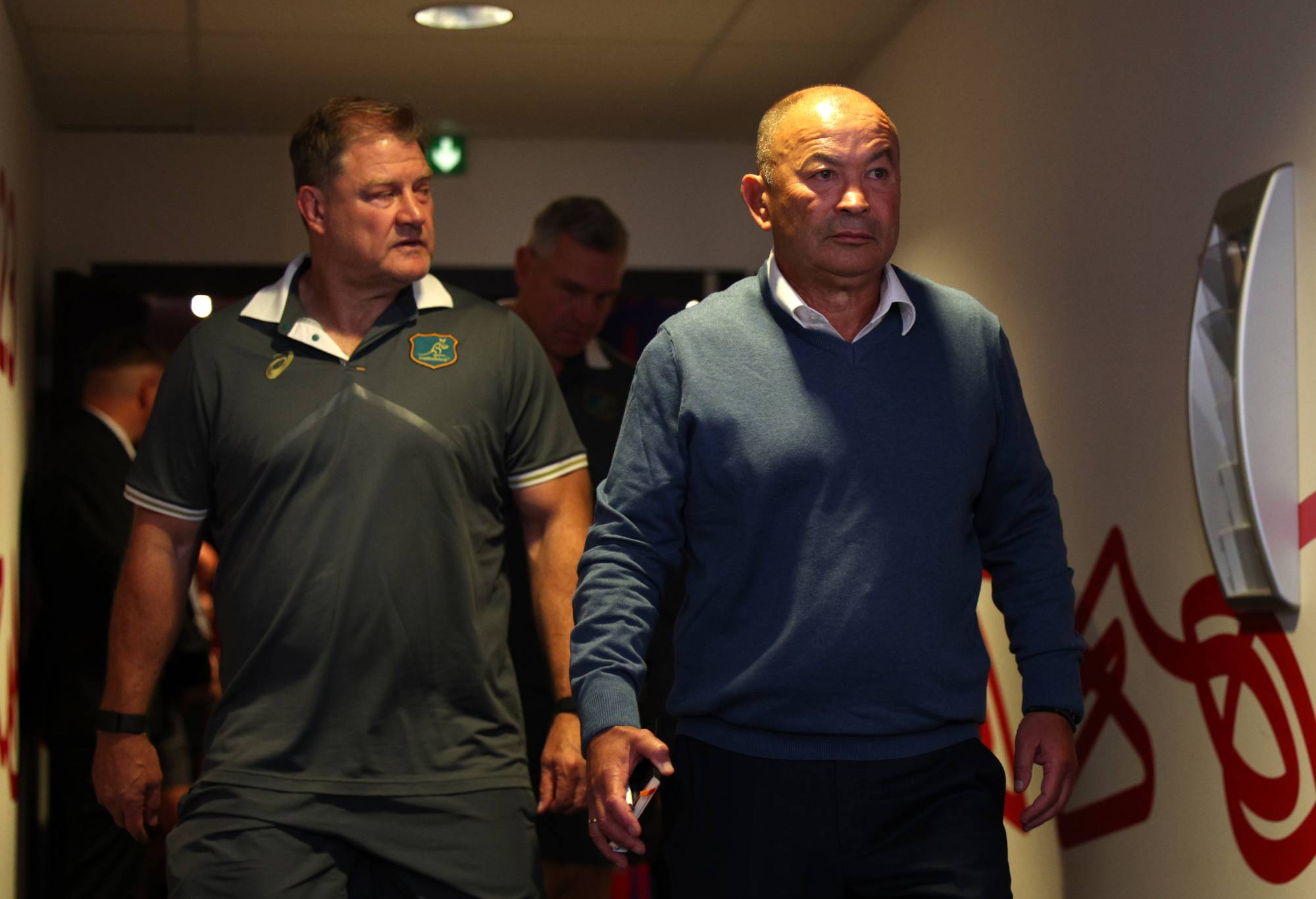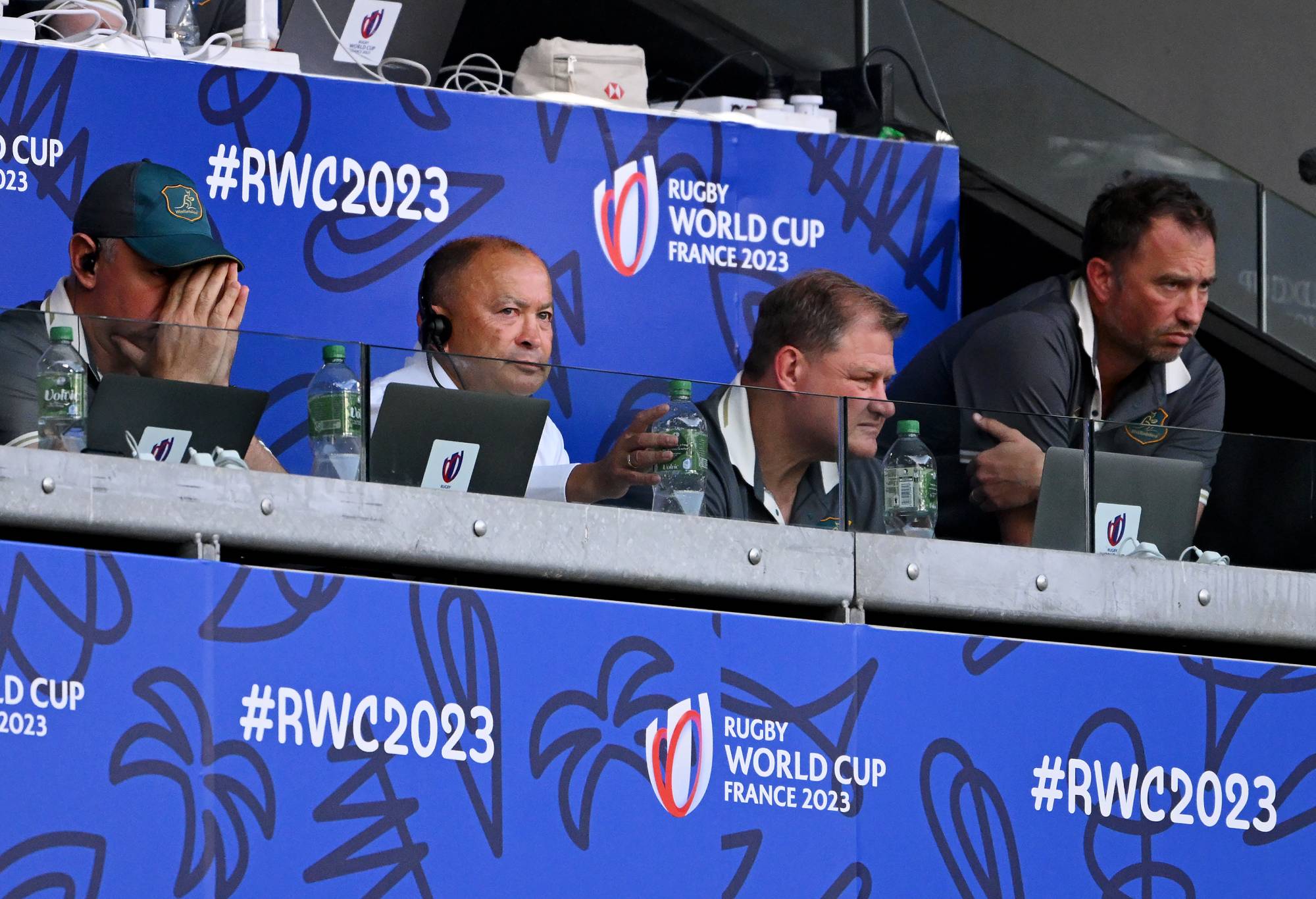cispt2
new author
Roar Rookie
There is a great deal of disappointment and anger from some at the reports that Eddie Jones may be returning to the role of head coach for the Japanese team. But at the same time, there has also been a great deal of relief at the idea that he may quit.
One thing not in dispute by many is that there is near-universal agreement that the Wallabies campaign has been a disaster and that a Dave Rennie-coached team would probably have fared better at the World Cup in France.
Let us examine what occurred and acknowledge that the morality of conducting business in the highly-scrutinised sporting world is sometimes murky – and perhaps more importantly, how hypocritical the fan reactions can be.
It was clear that the Wallabies were not performing to expected levels following the Autumn 2022 test series in Europe, but that the final Wallabies win against Wales may have saved Rennie from being sacked – momentarily.
In parallel with these events, there was growing frustration at Jones’ England team performances, which led to him being sacked by the RFU. That came in the first week of December 2022, and it did not take long for Jones to be appointed to the Wallabies role in the second week of January 2023, to much fanfare by Rugby Australia.

Eddie Jones. (Photo by Adam Pretty – World Rugby/World Rugby via Getty Images)
The ‘Christmas period’ is a notoriously difficult time to conduct business, but RA managed to interview Jones, negotiate a contract and receive the agreement of the board – both in terms of recruiting Jones and also signing off on the cost of paying for the remainder of Rennie’s contract.
This brings up the matter of hypocrisy. Why is there more outrage at Jones’ interview with the Japan Rugby Football Union (or indeed JRFU’s willingness to attempt to recruit a contracted rugby coach) than with Rugby Australia’s willingness to interview Jones despite having contracted Rennie to coach the Wallabies? The answer is, we should not be outraged.
Coaches and other senior staff are approached and interviewed with regularity. Certainly, some may have different professional behaviours to others, and choose to not seek employment till the end of a contract, but headhunting agencies seeking the best possible candidates will sound out attractive candidates irrespective of their current status.
In theory, if reports are correct, Jones will resign from the Wallabies coaching position (saving Rugby Australia millions in contract payout if he does so). What will Rugby Australia then do? They will begin seeking a new coach – that is if they have not already initiated that search.
So, we have another opportunity to examine our values and how we will apply them in the near future.
On the excellent ‘Rugby World Cup Inside Line’ podcast, the hosts named Dan McKellar as a possible Wallabies head coach recruit.
How could the hosts be outraged at Jones’ behaviour, but also, in the same breath, suggest McKellar commit the same act to join the Wallabies? McKellar recently started his role as head coach of Leicester, a role he moved to after quitting his previous Wallabies role.
There were no scandalous articles about McKellar interviewing for the role, and it is now suggested McKellar would be ripe for Rugby Australia to interview him while he is contracted.
Why do we set these double standards? Given the amount of attention on Jones, perhaps we should ask why the media have one standard for Jones, and another standard for the ‘business as usual’ musical chairs of coaching changes.
The answer is that this is personal. It seems to be a battle between Eddie Jones and the media – there were flare-ups during his time coaching England, and there is even more tension with the Australian media.

Eddie Jones during the Rugby World Cup match between Australia and Portugal. (Photo by Laurence Griffiths/Getty Images)
The foment from the media over Jones’ disdain laid the foundation of resentment almost immediately; the Wallabies head coach was unwilling to answer their questions and explain his selection decisions to their satisfaction.
The Darwin drama where Jones was intercepted and quizzed by a frustrated media pack was perhaps the low point before the World Cup. That is why, when the information that Jones was interviewing with JRFU came to hand, amid poor results on the field, the knives were sharpened in the media, and to the detriment of the Wallabies.
Why was the article about Jones’ interview released the morning of a critical match during the World Cup? It could have been released a day following the loss, with equal news impact. One can only conclude that it was timed to harm the Australian coach, and in doing so it was timed to harm the Wallabies’ performance.
Players stated it did not affect them, but you would expect them to say that. Jones turned his relationship with reporters into a personal and negative one – for example, the infamous “you don’t know rugby, mate”, and the blowback from those reporters has been severe.
While there has been a lot of fan reaction and anger, let us be honest, fans react, observe and debate big issues in the game, but have very little real impact on the world of International rugby machinations. It is like we are down here, and the media, coaches, and executives are up on Mount Olympus.
If you are asked by your employer whether you are interviewing for another job, your answer would be ‘no, I’m totally committed to my role and organisation’. If your boss asked a potential employer if they would interview you, they would also decline to answer. This is true in every employment sector.
Has Jones’ performance been appalling? Yes.
Has his treatment of the rugby public through his answers to journalists been unacceptable? Yes.
But it is not his fault that he is the coach of the Wallabies. That responsibility lies with the leadership and board of Rugby Australia.
That leadership will skewer Jones after he leaves, claim victory for saving millions in cutting a contract. It is not Jones we should be worried about; it is the revolving door of poor leadership and narcissistic behaviour from those who will remain that we should be examining.